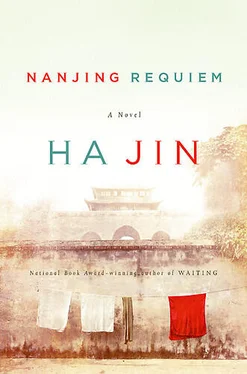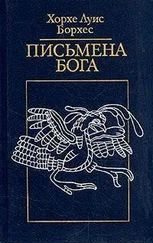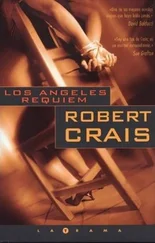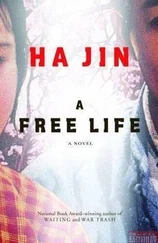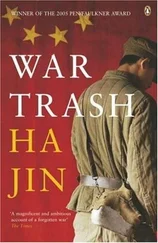When Minnie and I arrived at Searle’s, we found both Lewis Smythe and Bob Wilson in the historian’s spacious study, which was full of the fragrance of incense but topsy-turvy, books and framed photographs scattered around and the walls bare. The previous day the Japanese police had ransacked Searle’s home because they suspected that he had contributed to a book just published in London about the war atrocities in Nanjing and other southern cities. Minnie had disclosed to me that Searle did write under a pseudonym a portion of What War Means: The Japanese Terror in China . The police found few of the documents and eyewitness statements they were seeking, because Searle had deposited the materials in the U.S. embassy.
“So they didn’t take anything?” I asked him.
“They took some of my books and the calligraphy scrolls,” he said with a grimace, his chin slightly cleft. “I should’ve sold them. They also confiscated my son’s toy popgun. He’ll be mad at me.”
I knew he had owned some rare books, which must also be gone. He had filed a protest with the police headquarters, but it would be of no use.
He was still wearing a sling for a dislocated shoulder. I handed him a bag of pork buns and thanked him for rescuing my husband.
“This is great,” he said. “Thank you for these buns, Anling, but there’s no need to bring me these. Yaoping and I are friends and I ought to help.”
He placed the bag on the coffee table strewn with soda bottles. As Lewis and Bob reached out for the buns, Searle said, “No, no, this is for me only. You just wiped out my pumpkin stew.” He hugged the bag and then put it under the table. These grass widowers had sent their families away and ate irregularly nowadays, wherever they could find a meal. The three of them had aged quite a bit lately, and Bob, merely thirty-two, had lost nearly all his hair.
I sat down near a window while Minnie showed them the flyer, which they had heard about. But when he read it, Lewis looked quite shaken, became pale, and his eyes flickered, moist. He frowned and said, “I knew something like this might happen, but I didn’t expect to be labeled as a major collaborator. I went to the Japanese embassy every day to file protests. It’s true I walked with Tanaka on the streets from time to time, but that was just to show him what the soldiers had done.”
He covered his face with one hand and fought to maintain his composure. “This hurts, really hurts. It gets me right here,” he moaned, and his left hand touched his heart.
Silence fell in the study. Minnie went into the bathroom, brought back a clean hand towel, and gave it to him. “I know this is awful, Lewis,” she said. “But don’t let this rattle you. That’s what they’re hoping for.”
“Yes, we must take heart, Lewis,” Searle said. “We’ve done nothing we should feel ashamed of and can hold our heads high.”
“Thanks, thanks, I’ll be okay,” Lewis mumbled, and wiped his face with the towel.
A moment later Bob said, “I saw this sort of propaganda crap in Shanghai too, in the newspapers.”
“Do you think the Communists have something to do with this article?” Minnie asked.
“The puppet municipality is more likely behind it,” Searle said.
“But only the Reds dare to condemn the Japanese and the Americans like this author,” Bob went on.
Minnie agreed. “This does sound like Communist propaganda.”
“I’m not that sure,” Searle said. “There’s no way we can identify the author or authors — anyone can use a pseudonym.”
Lewis told us that the Autonomous City Government had been trying to break up the International Relief Committee, because the IRC had too much local power, organizing more than fourteen hundred members to do charity work. The puppet officials didn’t want to take over the task of helping the needy, but they were eager to get hold of the resources that the IRC had inherited from the former Safety Zone Committee. Some of the puppet officials had been reaping huge profits from one kind of monopoly or another. For example, those in charge of the city’s housing had seized vacant homes and other buildings and had rented them out. For every thousand yuan they collected, the Japanese allowed them to keep four hundred, so the officials had grown unscrupulous in possessing properties. Similar monopolies occurred in other trades as well, such as foodstuffs, medicines, alcohol, and fuel.
The four Americans fell to talking about the brand-new cars that were appearing in the city these days, mostly German-made Fords, Mercedes-Benzes, and Buicks. All of a sudden Nanjing seemed full of officials, who all had chauffeurs and servants. To me, those bigwigs looked more like opium addicts and ne’er-do-wells from wealthy families. Minnie said, “I don’t understand why so many Chinese are willing to serve their national enemy.”
“The rich must find a way to protect their wealth,” Lewis explained, “so their sons must control the government.”
“That must be true,” Bob agreed. “The other day I ran into one of those sons in the city hall. His dad presented a fighter-bomber to Chiang Kai-shek on his birthday two years ago.”
“To be fair,” Searle said, “some of the officials in the puppet municipality are not necessarily bad. They may have been disillusioned by the Nationalist regime. I know a man in charge of cultural affairs. He graduated from Rikkyo University, a very fine man who knows Greek and Latin and writes beautiful essays. He doesn’t like his current role, but he has to survive.”
“That’s true,” Bob said, waving his large hand. “If I had eight mouths to feed, I’d work for whoever paid me. The belly cries louder than principles.”
We all laughed.
Before we left, Searle told his fellow Americans to take precautions and avoid mixing too much with the puppet officials lest the Japanese attack them through the hands of their Chinese stooges and then blame it on the Communists. As Americans, they needed to appear neutral. Searle gave Bob and Lewis each three of the pork buns I’d brought him. He then offered to accompany Minnie and me back to Jinling, but we wouldn’t let him, saying it wasn’t nine o’clock yet and it was all right to walk back by ourselves. Besides, Minnie had a long flashlight.
We said good night to them and stepped out onto the dark street littered with sycamore leaves. Two pairs of searchlights like four giant rapiers went on stabbing into the depths of the moonlit sky, although no Chinese planes had come for more than a month. I wondered why the Japanese seemed fearful and on the defensive — perhaps because there were not enough troops to defend Nanjing at this time. As we walked along, Minnie talked about the situation in Europe, where she felt a holocaust had just been averted by the Munich Conference. She said, “I’m so glad that a lot of young men’s lives have been spared and many cities and towns have escaped destruction.”
“Everyone hates war, I guess,” I said.
“Even politicians?” she asked.
“Sure, few people are really hungry for blood.”
“How about the Japanese?”
“I’m still thinking whether I can take them as human beings.”
“Come on, Anling. You shouldn’t let hatred rule your life.”
Along Hankou Road not a single house had a light on. It seemed as if no one were living here, though from time to time a child’s cry would rise from somewhere. This small street used to be a sort of promenade for lovers, especially for university students in this area. Young couples would come here at night, strolling hand in hand or arm in arm or nestling with each other on the benches under the parasol trees. Sometimes they’d sing love songs in low voices. Now, most of the benches were gone, and we did not encounter a single soul here. I couldn’t help wondering if this place would ever be the same again. That seemed unlikely. Most things can’t stop changing once they have been changed.
Читать дальше
